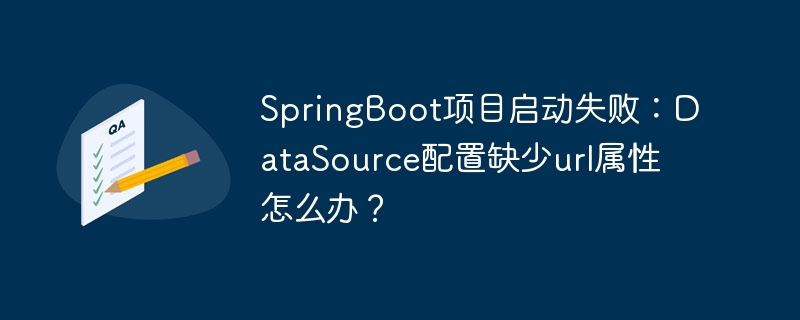要實(shí)現(xiàn)文件下載進(jìn)度條,需前后端協(xié)作。前端使用xmlhttprequest或fetch監(jiān)聽(tīng)下載進(jìn)度,并更新ui;后端需設(shè)置content-Length頭并分塊傳輸數(shù)據(jù)。具體步驟如下:1. 前端發(fā)起請(qǐng)求并監(jiān)聽(tīng)進(jìn)度事件;2. 根據(jù)獲取的loaded與total計(jì)算百分比,更新進(jìn)度條;3. 后端設(shè)置響應(yīng)頭并分塊讀取文件發(fā)送數(shù)據(jù)。若需支持?jǐn)帱c(diǎn)續(xù)傳,則需:1. 后端處理range請(qǐng)求,返回對(duì)應(yīng)字節(jié)范圍的數(shù)據(jù);2. 前端記錄已下載字節(jié)數(shù)并在中斷后繼續(xù)請(qǐng)求剩余部分;3. 錯(cuò)誤時(shí)捕獲并重試。優(yōu)化用戶(hù)體驗(yàn)方面可考慮:1. 顯示剩余時(shí)間;2. 支持暫停/恢復(fù)下載;3. 分片并行下載;4. 提供清晰錯(cuò)誤提示;5. 使用service worker后臺(tái)下載。以上措施能有效提升用戶(hù)對(duì)下載過(guò)程的掌控感和滿意度。

文件下載進(jìn)度條的實(shí)現(xiàn),核心在于監(jiān)聽(tīng)下載過(guò)程中的數(shù)據(jù)變化,并將其可視化。簡(jiǎn)單的說(shuō),就是告訴用戶(hù)“我還在下載,別著急!”。

解決方案

實(shí)現(xiàn)文件下載進(jìn)度,主要涉及前端與后端兩個(gè)部分。

前端(JavaScript):
-
發(fā)起下載請(qǐng)求: 使用 XMLHttpRequest 或 fetch API 發(fā)起下載請(qǐng)求。fetch 相對(duì)更簡(jiǎn)潔,但 XMLHttpRequest 在處理進(jìn)度事件方面更成熟。
-
監(jiān)聽(tīng)進(jìn)度事件: 重點(diǎn)來(lái)了!XMLHttpRequest 提供了 progress 事件,可以實(shí)時(shí)獲取下載進(jìn)度。fetch 則需要通過(guò) ReadableStream 來(lái)讀取數(shù)據(jù),并計(jì)算進(jìn)度。
-
更新進(jìn)度條: 根據(jù)獲取到的進(jìn)度數(shù)據(jù),更新頁(yè)面上的進(jìn)度條。
后端(Node.JS 示例):
-
設(shè)置響應(yīng)頭: 確保設(shè)置了 Content-Length 響應(yīng)頭,前端才能知道文件總大小。
-
分塊讀取文件: 使用 fs.createReadStream 分塊讀取文件,避免一次性加載到內(nèi)存。
-
發(fā)送數(shù)據(jù): 將讀取到的數(shù)據(jù)塊發(fā)送給客戶(hù)端。
代碼示例 (XMLHttpRequest):
function downloadFile(url, progressBarId) { const xhr = new XMLHttpRequest(); xhr.open('GET', url, true); xhr.responseType = 'blob'; // 重要! xhr.onload = function() { if (xhr.status === 200) { const blob = xhr.response; const url = window.URL.createObjectURL(blob); const a = document.createElement('a'); a.href = url; a.download = 'your_file.zip'; // 設(shè)置下載文件名 document.body.appendChild(a); a.click(); a.remove(); window.URL.revokeObjectURL(url); } }; xhr.onprogress = function(event) { if (event.lengthComputable) { const percentComplete = (event.loaded / event.total) * 100; document.getElementById(progressBarId).value = percentComplete; console.log(`下載進(jìn)度: ${percentComplete}%`); } }; xhr.send(); } // 調(diào)用示例 downloadFile('/path/to/your/file.zip', 'myProgressBar');
代碼示例 (fetch):
async function downloadFileFetch(url, progressBarId) { const response = await fetch(url); const reader = response.body.getReader(); const contentLength = response.headers.get('Content-Length'); let receivedLength = 0; let chunks = []; while(true) { const {done, value} = await reader.read(); if (done) { break; } chunks.push(value); receivedLength += value.length; const percentComplete = (receivedLength / contentLength) * 100; document.getElementById(progressBarId).value = percentComplete; console.log(`下載進(jìn)度: ${percentComplete}%`); } const blob = new Blob(chunks); const url = window.URL.createObjectURL(blob); const a = document.createElement('a'); a.href = url; a.download = 'your_file.zip'; document.body.appendChild(a); a.click(); a.remove(); window.URL.revokeObjectURL(url); } // 調(diào)用示例 downloadFileFetch('/path/to/your/file.zip', 'myProgressBar');
如何處理大文件下載中斷的問(wèn)題?
大文件下載最怕的就是網(wǎng)絡(luò)中斷。斷點(diǎn)續(xù)傳是關(guān)鍵。這需要后端支持,前端也需要做相應(yīng)處理。
-
后端支持 Range 請(qǐng)求: 后端需要支持 Range 請(qǐng)求頭,允許客戶(hù)端指定從文件的哪個(gè)位置開(kāi)始下載。
-
前端記錄已下載字節(jié)數(shù): 前端需要記錄已經(jīng)下載的字節(jié)數(shù),并在下次請(qǐng)求時(shí),將 Range 請(qǐng)求頭設(shè)置為 bytes=已下載字節(jié)數(shù)-。
-
錯(cuò)誤處理: 捕獲下載錯(cuò)誤,并在網(wǎng)絡(luò)恢復(fù)后,重新發(fā)起請(qǐng)求,攜帶 Range 請(qǐng)求頭。
后端 Node.js 示例 (支持 Range 請(qǐng)求):
const fs = require('fs'); const http = require('http'); const path = require('path'); const server = http.createServer((req, res) => { const filePath = path.resolve(__dirname, 'your_large_file.zip'); const stat = fs.statSync(filePath); const fileSize = stat.size; const range = req.headers.range; if (range) { const parts = range.replace(/bytes=/, "").split("-"); const start = parseInt(parts[0], 10); const end = parts[1] ? parseInt(parts[1], 10) : fileSize - 1; const chunkSize = (end - start) + 1; const file = fs.createReadStream(filePath, { start, end }); const head = { 'Content-Range': `bytes ${start}-${end}/${fileSize}`, 'Accept-Ranges': 'bytes', 'Content-Length': chunkSize, 'Content-Type': 'application/zip', // 根據(jù)文件類(lèi)型修改 }; res.writeHead(206, head); // 206 Partial Content file.pipe(res); } else { const head = { 'Content-Length': fileSize, 'Content-Type': 'application/zip', // 根據(jù)文件類(lèi)型修改 }; res.writeHead(200, head); fs.createReadStream(filePath).pipe(res); } }); server.listen(3000, () => { console.log('Server listening on port 3000'); });
前端代碼修改 (XMLHttpRequest,支持?jǐn)帱c(diǎn)續(xù)傳):
function downloadFileWithResume(url, progressBarId) { let downloadedBytes = localStorage.getItem('downloadedBytes') || 0; downloadedBytes = parseInt(downloadedBytes); const xhr = new XMLHttpRequest(); xhr.open('GET', url, true); xhr.responseType = 'blob'; xhr.setRequestHeader('Range', `bytes=${downloadedBytes}-`); xhr.onload = function() { if (xhr.status === 206 || xhr.status === 200) { const blob = xhr.response; const url = window.URL.createObjectURL(blob); const a = document.createElement('a'); a.href = url; a.download = 'your_file.zip'; document.body.appendChild(a); a.click(); a.remove(); window.URL.revokeObjectURL(url); localStorage.removeItem('downloadedBytes'); // 下載完成,移除記錄 } }; xhr.onprogress = function(event) { if (event.lengthComputable) { const total = event.total + downloadedBytes; // 總大小需要加上已下載的 const loaded = event.loaded + downloadedBytes; // 已加載的需要加上已下載的 const percentComplete = (loaded / total) * 100; document.getElementById(progressBarId).value = percentComplete; console.log(`下載進(jìn)度: ${percentComplete}%`); localStorage.setItem('downloadedBytes', loaded); // 記錄已下載字節(jié)數(shù) } }; xhr.onerror = function() { console.error('下載出錯(cuò),稍后重試'); }; xhr.send(); } // 調(diào)用示例 downloadFileWithResume('/path/to/your/file.zip', 'myProgressBar');
如何優(yōu)化大文件下載的用戶(hù)體驗(yàn)?
除了進(jìn)度條,還可以考慮以下優(yōu)化:
-
顯示剩余時(shí)間: 根據(jù)下載速度和剩余大小,估算剩余下載時(shí)間。
-
允許暫停和恢復(fù): 提供暫停和恢復(fù)下載的功能,方便用戶(hù)控制。
-
分片下載: 將文件分成多個(gè)小片并行下載,提高下載速度 (需要后端支持)。
-
錯(cuò)誤提示: 提供清晰的錯(cuò)誤提示信息,例如網(wǎng)絡(luò)錯(cuò)誤、服務(wù)器錯(cuò)誤等。
-
后臺(tái)下載: 使用 Service Worker 實(shí)現(xiàn)后臺(tái)下載,即使關(guān)閉頁(yè)面也能繼續(xù)下載。這個(gè)比較復(fù)雜,需要深入了解 Service Worker 的相關(guān)知識(shí)。
記住,用戶(hù)體驗(yàn)至關(guān)重要。一個(gè)清晰的進(jìn)度條,加上合理的錯(cuò)誤提示,能大大提升用戶(hù)對(duì)下載過(guò)程的感知和滿意度。
.jpg)

















.png)
